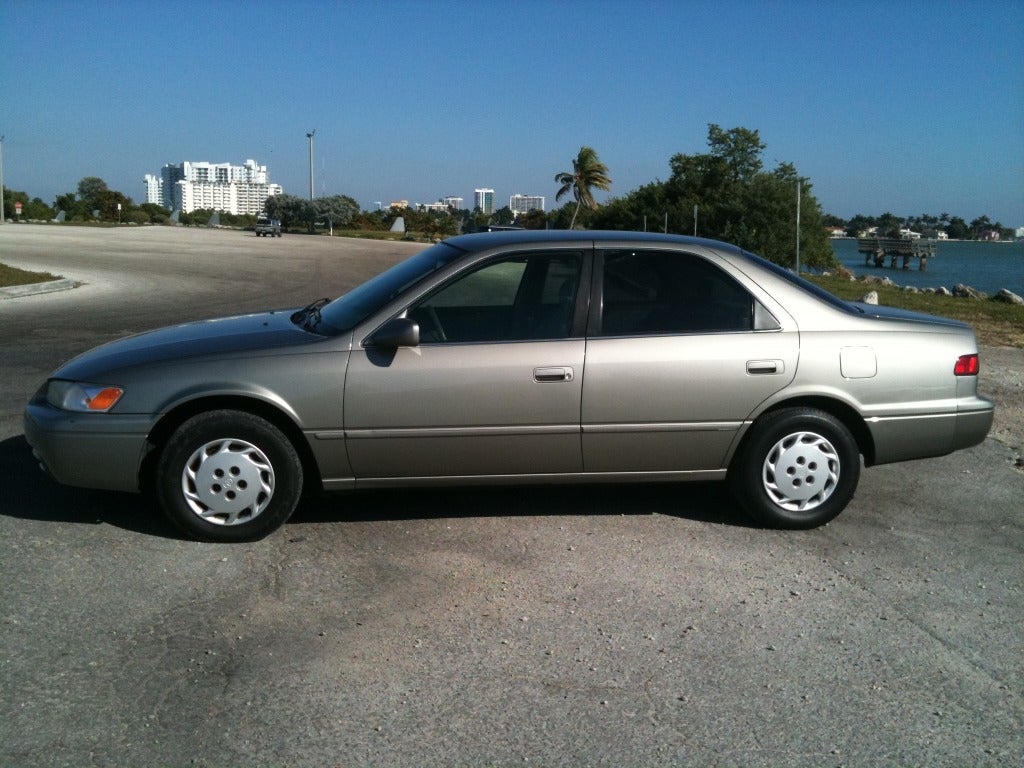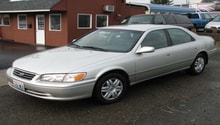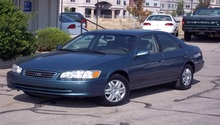Toyota Camry: Buying Guide
Purchasing a vehicle at the optimum time could save you big bucks. Read on to discover the best time to buy and sell a Toyota Camry.
This article applies to the Toyota Camry (1997-2011).
The Toyota Camry is a well-reviewed vehicle with a strong track record for performance. Considered a good investment thanks in part to its competitively priced sticker price, strong engine, estimated maximum lifetime repairs and relatively strong fuel economy both in the city as well as on the highway, the Camry is a reliable vehicle that even beats out some leading luxury vehicles when it comes to overall value and lifetime savings. Let's look at how good of an investment the Camry is across a range of purchasing scenarios.
Purchasing Scenarios
Best Time to Buy a Toyota Camry
Aside from the benefits of being the owner of a new vehicle (e.g., owning the warranty to the vehicle and dealing with zero initial repairs), the Toyota Camry is not the kind of vehicle that needs to be purchased new in order to be a great investment for its owner. The sticker price on the Camry does drop as a vehicle racks up extra miles, years and general wear along the body and tires; however, the vehicle overall does not experience a drastic decrease in value as is seen with some luxury vehicles, such as the Mercedes S-Class. Bottom line: The Camry is a good bet for your dollar!

Engine Considerations
Keep in mind, in 2002 Toyota changed the engine design in the Camry, which led to some sludge issues, which might have been exacerbated by pushing out engine oil changes to longer than usual. As well, this replacement engine has had problems with pulled head bolt treats. By most accounts, these engine problems were fixed in 2008 when Toyota unveiled new modifications to the engine. The V6 engine also received some complaints, and in 2007 underwent a series of highly publicized modifications. For a V6 engine, it's recommended that you stick with a 2003 or later Camry.

Transmission Issues
Your transmission should be your number one priority when maintaining your Camry (whether it is purchased new or used). Reports of major transmission problems, including a number of TSBs have been widely reported for the Camry, so have your transmission checked regularly. Check your transfer case and differential fluid every 15,000 miles while you're at it. If you do require a replacement transmission as your old one eventually ages out of commission, consider visiting a local salvage yard to reduce costs. You might be able to find a decent replacement; however, you will need to properly inspect the entire transmission assembly for signs of damage and excessive wear. Used transmissions are also available at a cost of approximately $150 to $400.

Scheduled Maintenance
Make sure to change your engine oil every 5,000 miles or as sludge accumulates in the reservoir. Check your transmission fluid for signs of discoloration (e.g., changes from red to black) and replace as needed. Check your cooling system every 30,000 miles, as well as your steering and suspension components. Fuel lines as well as ignition wires and distributor cap should also be inspected and replaced as needed every 30,000 miles.
Common Questions
Have many Technical Service Bulletins (TSBs) been issued for the Camry?
The Camry has received a number of TSBs throughout the years; however, many have tapered off since 1999. At its highest rate, in 1997 alone, the Camry received over 90 TSBs for issues ranging from faulty parts (e.g., suspension, mirrors and headlights) to missing manual information.
How do I improve my gas mileage?
The 1997-2001 Camry gets 20 MPG in the city and 28 MPG on the highway, while newer model years, such as the 2014 and 2015 vehicles, get 21 to 43 miles in the city and 31 to 39 on the highway, respectively. The best way to improve your car's fuel economy is to maintain your tires, replace old/smelly fluids, clean your fuel system using a premium quality fuel system cleaning product and avoid stop-and-go traffic, whenever possible.
(Related Article: How to Improve MPG - Camryforums.com)
Common Issues
Leaky Water Pump
Leaks in your water pump can occur over time. This is a simple do-it-yourself repair that can be done in a matter of minutes from the comfort of your home garage. You'll need to detach the old water pump by hand, and then replace it with a new one.
General Wear to Parts
Similarly with most passenger vehicles on the market, components in the Camry can wear down over time. Watch out for leaks and pay attention to the condition of your water pump, coolant hose, and upper radiator tank.
Related Site
- Toyota Camry - Cars.datastories.com






